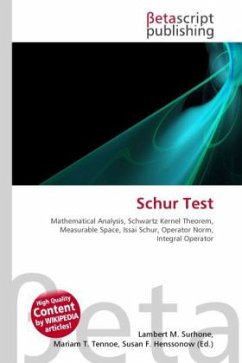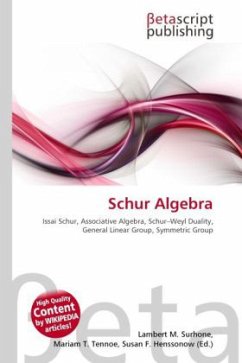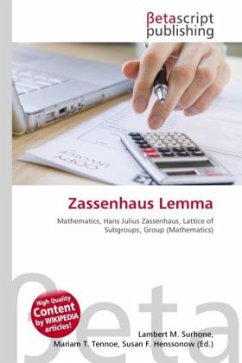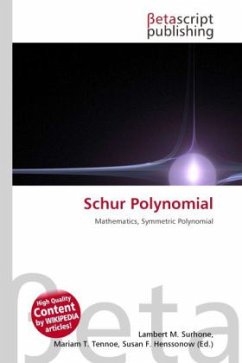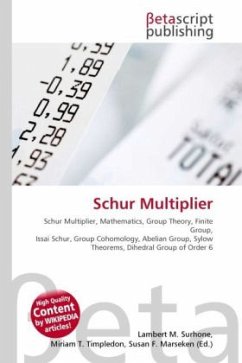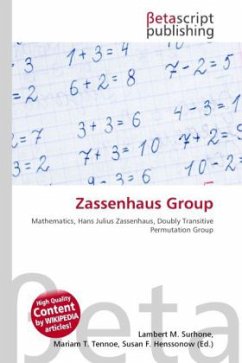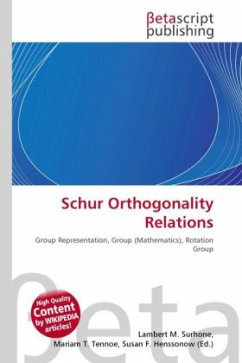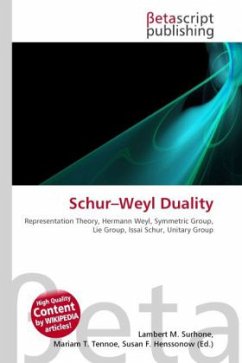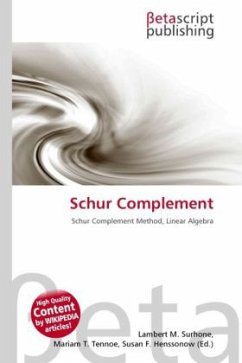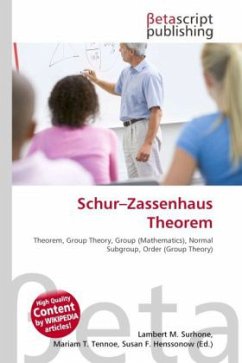
Schur Zassenhaus Theorem
Versandkostenfrei!
Versandfertig in 6-10 Tagen
23,99 €
inkl. MwSt.

PAYBACK Punkte
12 °P sammeln!
High Quality Content by WIKIPEDIA articles! The Schur Zassenhaus theorem is a theorem in group theory which states that if G is a finite group, and N is a normal subgroup whose order is coprime to the order of the quotient group G / N, then G is a semidirect product of N and G / N. An alternative statement of the theorem is that any normal Hall subgroup of a finite group G has a complement in G. It is clear that if we do not impose the coprime condition, the theorem is not true: consider for example the cyclic group C4 and its normal subgroup C2. Then if C4 were a semidirect product of C2 and ...
High Quality Content by WIKIPEDIA articles! The Schur Zassenhaus theorem is a theorem in group theory which states that if G is a finite group, and N is a normal subgroup whose order is coprime to the order of the quotient group G / N, then G is a semidirect product of N and G / N. An alternative statement of the theorem is that any normal Hall subgroup of a finite group G has a complement in G. It is clear that if we do not impose the coprime condition, the theorem is not true: consider for example the cyclic group C4 and its normal subgroup C2. Then if C4 were a semidirect product of C2 and C_4 / C_2 cong C_2 then C4 would have to contain two elements of order 2, but it only contains one. The Schur Zassenhaus theorem at least partially answers the question: "In a composition series, how can we classify groups with a certain set of composition factors?" The other part, which is where the composition factors do not have coprime orders, is tackled in extension theory.




